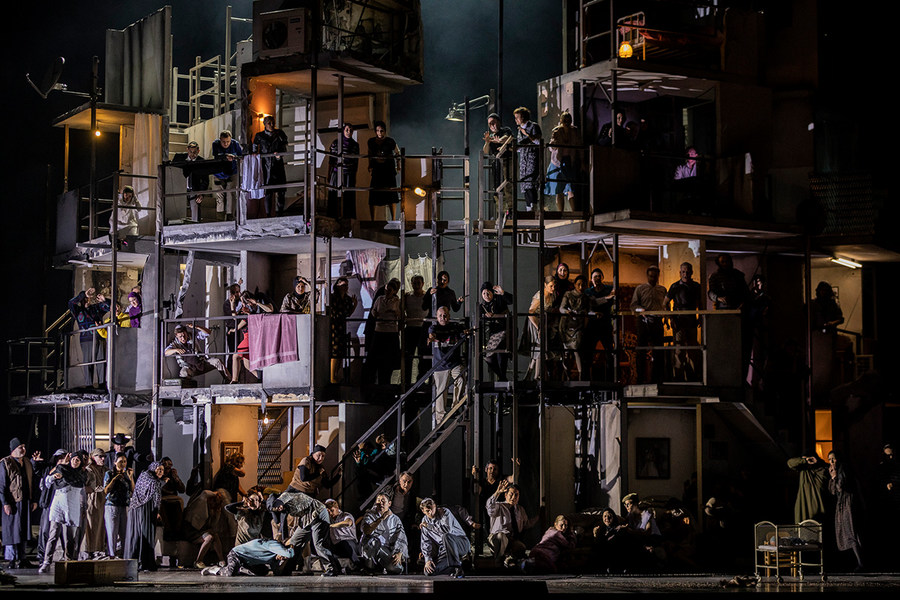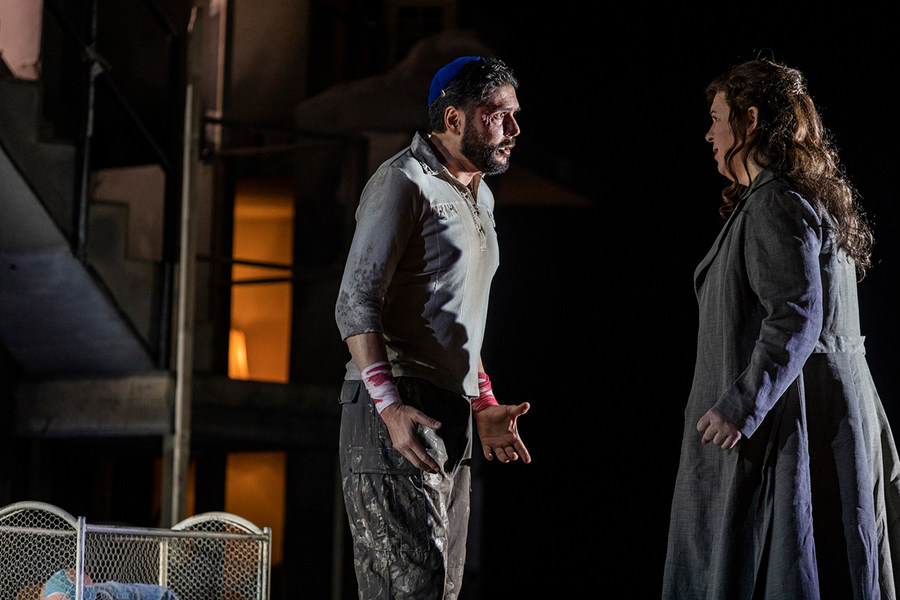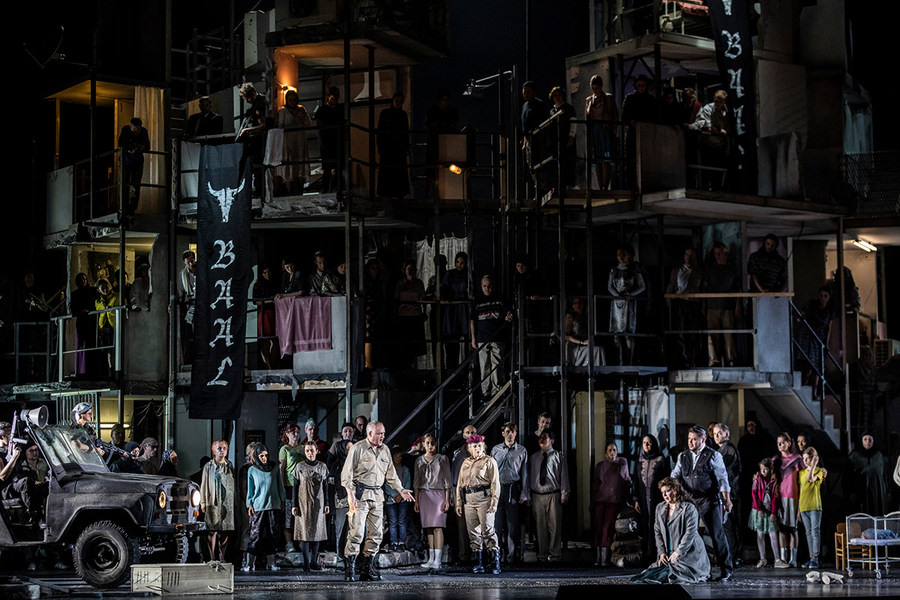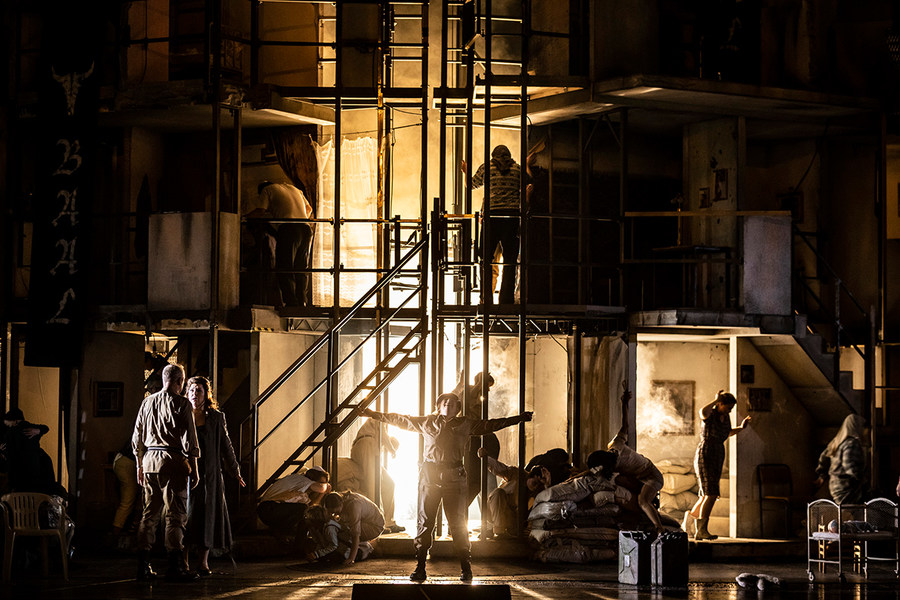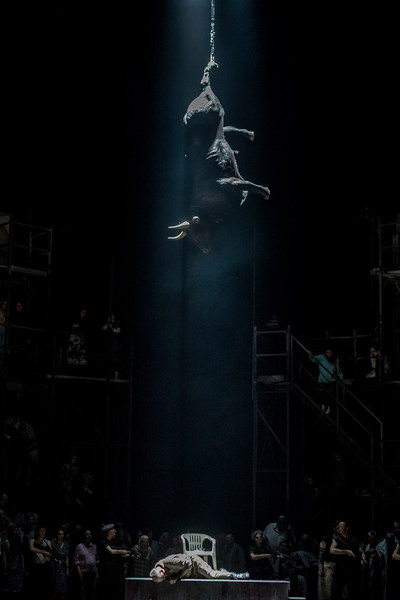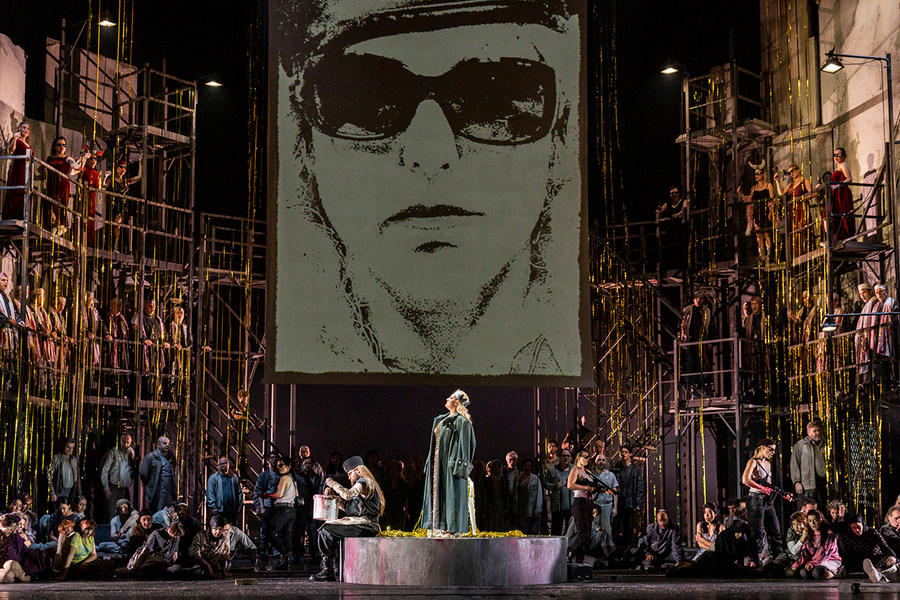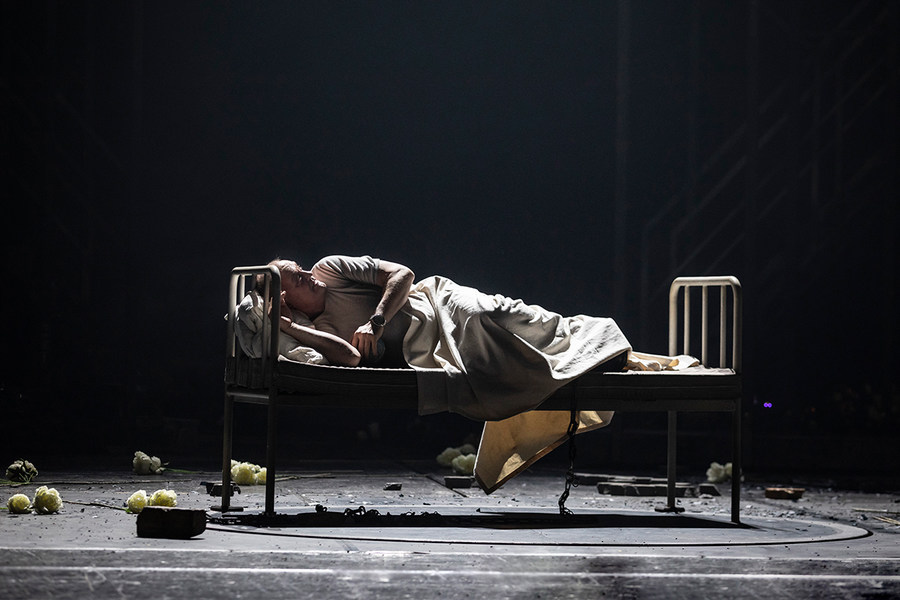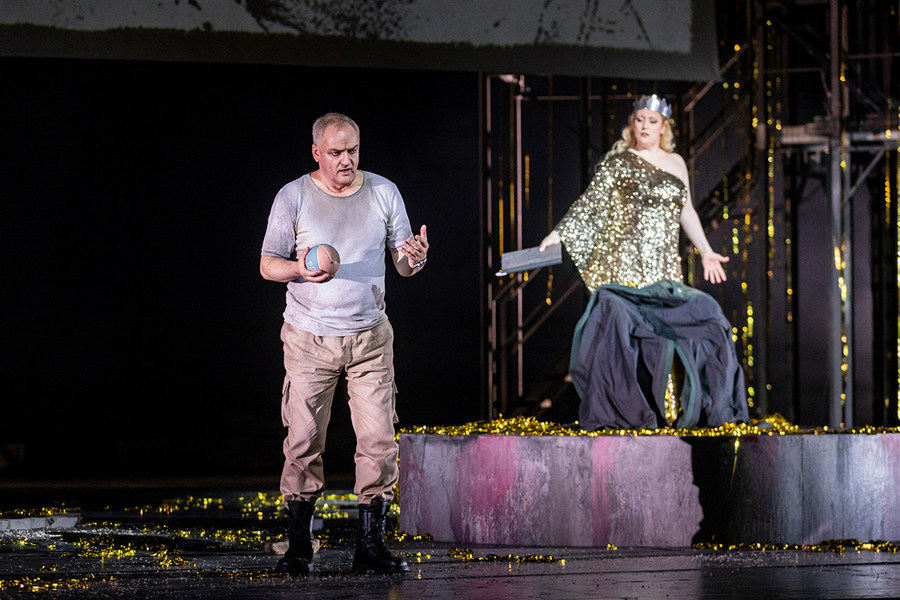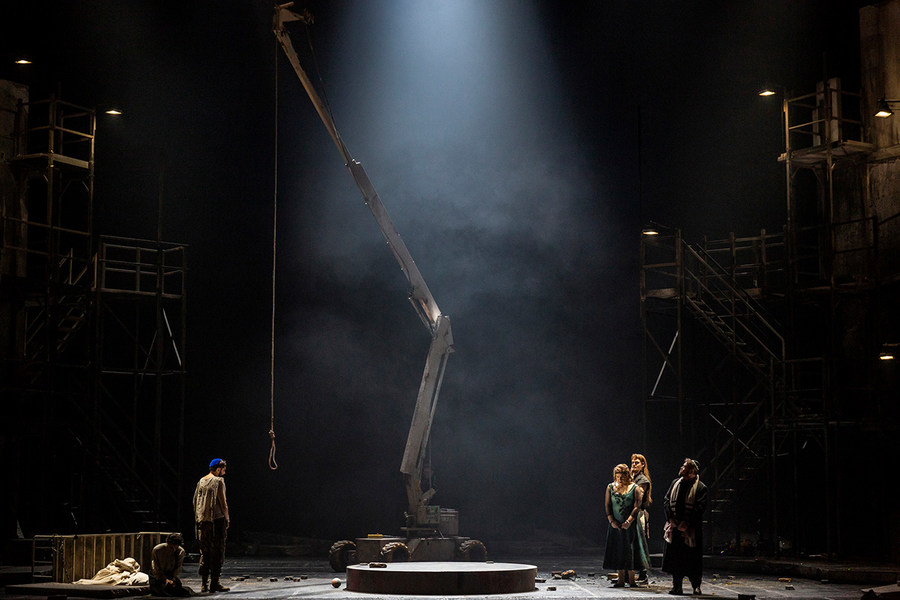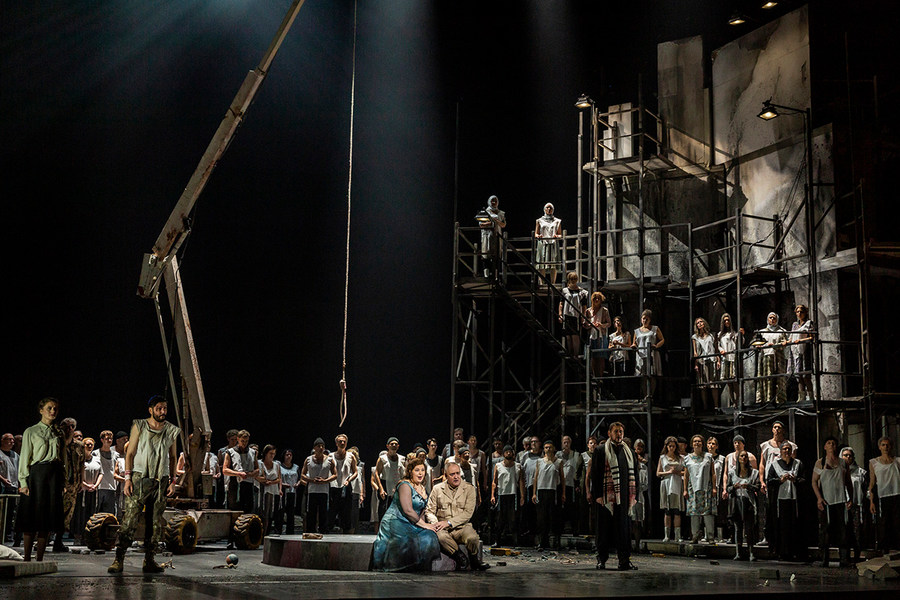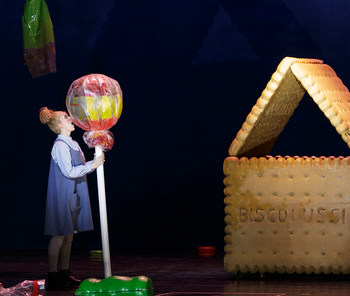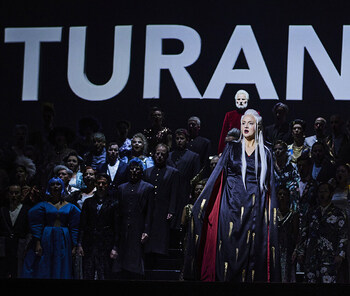Giuseppe Verdi
Premiere 25. May 2019
Performed in Italian with German and English supertitles
Piece-Info
Nabucco, the King of Babylon, has subjugated the Israelites and destroyed their temple. His daughter Fenena loves one of the enslaved Hebrews, while the second daughter Abigaille hates the Israelites. In the ecstasy of victory, Nabucco declares himself to be God, and promptly loses his senses. When Abigaille learns that she herself is the daughter of a slave, a deadly power struggle is set in motion. First performed at La Scala in Milan in 1842, »Nabucco« relates an Old Testament story dealing with freedom, identity, hubris and belief. Verdi’s third work for the operatic stage is one of the most popular of all Italian operas, not just because of the Choir of Hebrew Slaves (»Va’ pensiero, sull’ali dorate«), but also due to its gripping plot and powerful melodies. Director David Bösch places a ramshackle residential block at the centre of his production to represent the besieged Jerusalem and the Tower of Babel.
Part one »Jerusalem«
Jerusalem is under siege by the troops of the King of Babylon, Nabucco. Zaccaria, the Israelites’ spiritual leader, has taken Nabucco’s favourite daughter Fenena hostage in the hope to thereby avert the conquest of the city. Fenena loves a young Israelite, Ismaele, whom she once helped to escape from her father's prison. Nabucco’s first-born daughter Abigaille, who is also in love with Ismaele, creeps into the beleaguered city and offers Ismaele that she will save him if he returns her love. Ismaele refuses her offer. Nabucco invades the city with his soldiers. Zaccaria threatens to kill the hostage Fenena, but Ismaele frees the king’s daughter. Nabucco is triumphant: whilst the Israelites curse the traitor Ismaele, he orders the burning of the city and the enslavement of its inhabitants.
Part two »The Blasphemy«
Abigaille has learnt that she is not in fact Nabucco’s daughter; her parents were slaves and the king adopted her. The high priest of the Bel warns her against the influence of the Israelites, who are being protected by Fenena, and demands that they be killed. Abigaille allies herself with the priests as she intends to wrest the crown from the king. – Even in enslavement, Zaccaria praises his god. Fenena has adopted the Hebrew faith, thereby saving Ismaele from the revenge of his people. – The priests have spread the rumour of Nabucco’s death in battle, and proclaim Abigaille to be the new queen. Suddenly, Nabucco, whom everyone believed to be dead, reappears. Surrounded by the followers of Bel and the Israelites, the king declares himself to be the one and only god. Nabucco is struck by lightning. He falls, and Abigaille claims the crown.
Part three »The Prophecy«
Nabucco has gone mad. Abigaille now rules and intends to destroy the Israelites. With a ruse, she tricks the insane king into sealing their fate. Nabucco realises too late that he has thereby also condemned his own daughter Fenena to death. Abigaille has achieved everything she wished for and has her father taken prisoner. – The Israelites dream of a better future, but Zaccaria foretells the end of their slavery.
Part four »The Broken Idol«
The imprisoned Nabucco can no longer tell dreams from reality. However, when he realises that Fenena is about to be executed, he regains his senses. He is now prepared to accept the Hebrew god and to ask for forgiveness. Some of the king’s loyal subjects set him free. – Nabucco manages to save the lives of Fenena and Zaccaria at the last minute. Abigaille has realised that she has lost her power and poisons herself. As she lies dying, she asks Fenena's forgiveness and begs god for mercy. Nabucco’s new reign is dedicated to the Hebrew god.
Gallery
Nabucco
